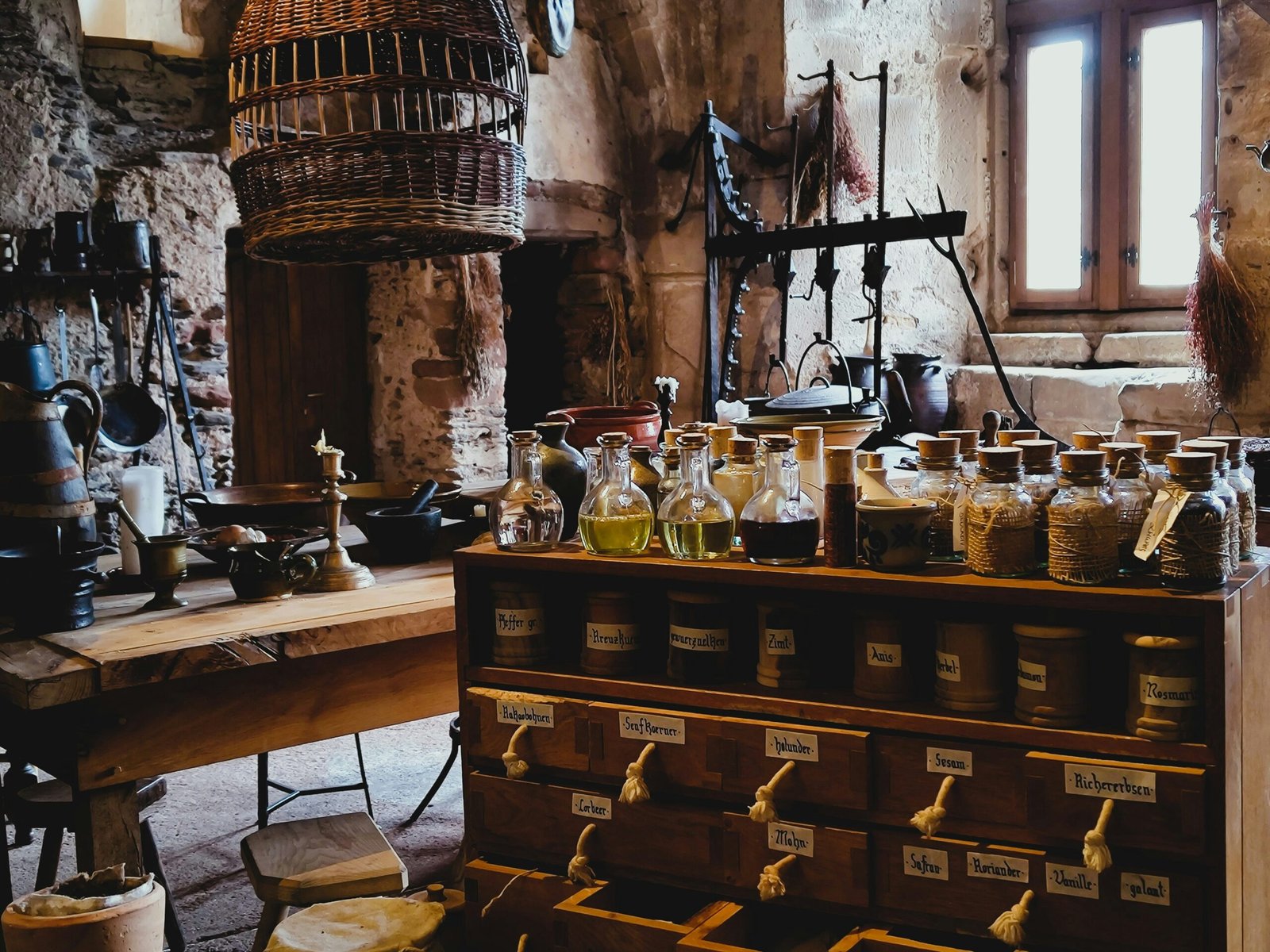The Fascinating World of Alchemy: History and Philosophy
Alchemy is more than the mystical art of turning lead into gold. It represents a profound journey, blending science, philosophy, and spirituality in the pursuit of transformation, both physical and metaphysical. From its ancient beginnings to its lasting influence, alchemy invites us to unravel the mysteries of nature and existence.
What is Alchemy?
Alchemy is an ancient discipline that bridges the material and spiritual worlds. Rooted in the belief that everything in the universe is interconnected, alchemists sought to unlock the secrets of transformation at every level:
- The Philosopher’s Stone: A legendary substance thought to transmute base metals into gold and grant immortality.
- The Elixir of Life: A mythical potion capable of curing all ailments and extending life indefinitely.
- Spiritual Transmutation: A symbolic process of refining the soul and achieving enlightenment.
Alchemy wasn’t merely a quest for material riches; it was a metaphor for personal and cosmic evolution.
The Origins of Alchemy
Alchemy traces its roots across cultures and centuries, evolving through the fusion of science, mysticism, and mythology.
1. Ancient Beginnings
- Egyptian Alchemy: Known as “Khemia,” alchemy was deeply intertwined with the spiritual practices of ancient Egypt, dating as far back as 3000 BCE. The Egyptians believed in the sacred transformation of matter, guided by Thoth (later identified with Hermes Trismegistus in Greek mythology), the god of wisdom and magic.
- Greek Influence: By the Hellenistic period (circa 332 BCE–30 BCE), Greek philosophers like Aristotle contributed foundational ideas about the elements; earth, air, fire, and water, which became central to alchemical theory. This period also saw the integration of Egyptian mystical practices with Greek philosophical thought.
2. Chinese Alchemy
- In China, alchemy emerged independently around 400 BCE, with Taoist practitioners focusing on longevity and spiritual harmony. Their work combined meditation, herbal remedies, and energetic practices to balance the body and spirit. Alchemy in China laid the groundwork for early advancements in chemistry and medicine.
3. Islamic Golden Age
- Alchemy reached new heights between the 8th and 13th centuries during the Islamic Golden Age. Scholars such as Jabir ibn Hayyan (circa 721–815 CE), known as Geber in the Latin West, revolutionized alchemical theory. He introduced systematic experimentation and refined laboratory techniques, establishing principles that would later inform modern chemistry.
4. European Renaissance
- During the Middle Ages, around the 12th century, alchemy entered Europe through translations of Arabic texts. By the 15th and 16th centuries, it became deeply entwined with Renaissance thought. Influential figures like Paracelsus (1493–1541) challenged traditional medical practices by integrating alchemy with medicine. Meanwhile, Isaac Newton (1643–1727), known for his contributions to science, spent much of his life studying alchemical texts.
The Philosophy of Alchemy
Alchemy is far more than the manipulation of physical substances, it embodies a deeper philosophy:
- Transformation: The process of turning base metals into gold symbolizes the refinement of the soul and the quest for spiritual perfection.
- Unity: Alchemy emphasizes the interconnectedness of all things elements, planets, and human beings, within the cosmic order.
- Symbolism: Alchemical texts are rich with symbols, such as the ouroboros (a serpent eating its own tail), representing cycles, eternity, and renewal.
Modern Alchemy
While ancient alchemy focused heavily on the transformation of physical matter, modern interpretations delve into emotional and energetic transmutation. Today’s alchemy is often viewed as a metaphorical practice where individuals work to transform negativity into personal growth and empowerment. For example:
- Energy Alchemy: Redirecting negative energy sent your way, transforming it into strength, resilience, or positive action.
- Emotional Alchemy: Turning challenging emotions such as anger or sadness into creative expression or self-discovery.
- Spiritual Growth: Using introspection and mindfulness to refine your inner self and achieve personal transformation.
These practices reflect the timeless core of alchemy: finding value and enlightenment through transformation, no matter the form it takes.
Alchemy’s Legacy
Although alchemy eventually gave way to modern science, its influence persists:
- Chemistry: The experimental methods developed by alchemists laid the groundwork for modern chemistry. Concepts like distillation and crystallization were perfected in alchemical laboratories.
- Psychology: Carl Jung, the renowned Swiss psychologist, interpreted alchemical processes as metaphors for psychological transformation, particularly in the process of individuation.
- Literature and Art: Alchemy’s themes of transformation and hidden wisdom continue to inspire works of fiction, film, and visual arts.
Alchemy remains an enigmatic and timeless pursuit, weaving together science, spirituality, and philosophy. This expanded exploration only scratches the surface of its complexities. Would you like to delve deeper into its practices, symbols, or famous figures?
Photo by Jayesh Sharma on Unsplash

